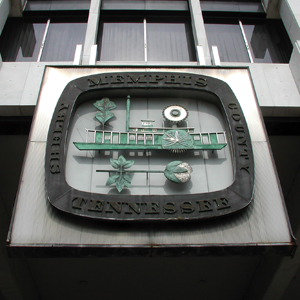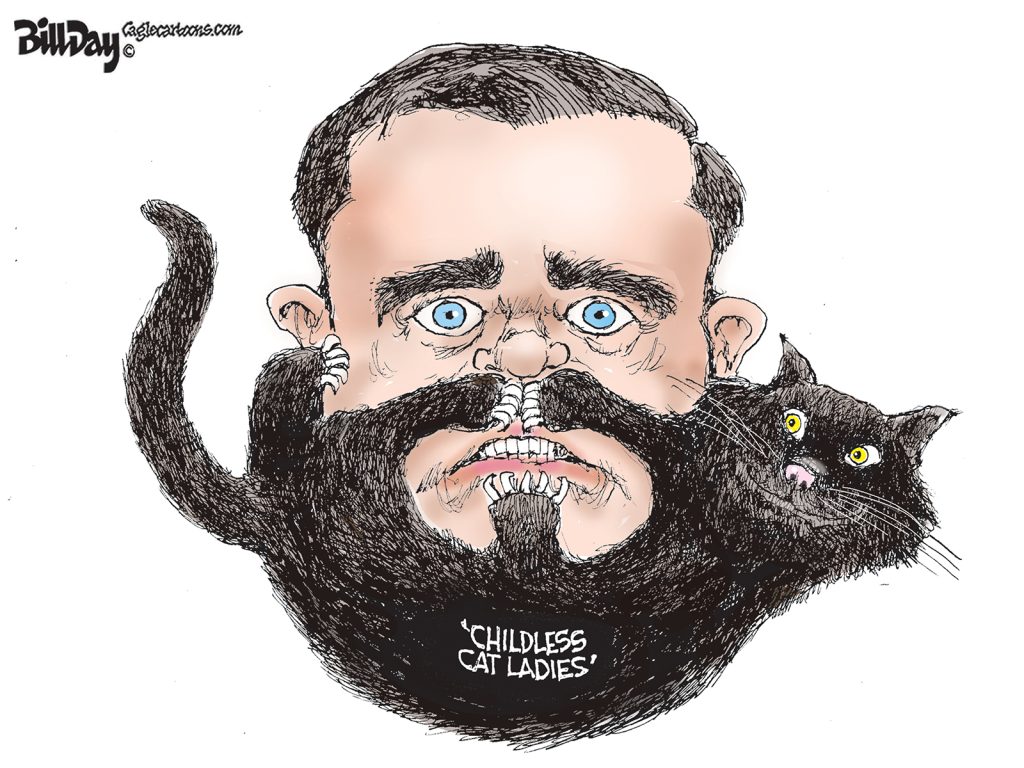Maybe it’s time for the Memphis Police Association to put up or shut up. Once again, they have spent union dues to put up billboards trafficking in fear and undermining the public support they so badly need for community policing.
But more to the point, if the Police Association says that having 500 fewer officers was directly responsible for a record murder rate, it should tell us how having more police officers would have resulted in fewer homicides. After all, there are cities that have recorded declining violent crime rates while reducing the size of their police force. As we have written before, the correlation between the number of police officers and the crime rate is tenuous at best and the lack of definitive research to that effect is telling.
As Mayor Mark Luttrell has said, crime reduction has three legs – suppression (arrests), prevention, and intervention – but our community has time and time again concentrated on only one – putting more people in jail, pushing for more and longer mandatory sentences, hiring more prosecutors, trying more juveniles as adults, and more.
A major underlying problem is that there are too many guns too available too cheap and we’re waiting for the police association to take to the front lines calling for sensible gun laws. If the answer is more firepower on the force, it should be advocating for less firepower on the street. If the police association is willing to point out problems, it should suggest solutions.
We are pleased that Mayor Jim Strickland announced in last week’s State of the City that he is doubling the 901 Bloc Squad, which dramatically reduced crime in its pilot neighborhoods and that he is extending the hours of city libraries, starting Memorial Day. Both are crime prevention initiatives, but for far too long, libraries have been undervalued in the fight against youth crimes in particular. For that reason, it would be welcome show of civic leadership if the police association strongly supported other services funded by Memphis taxpayers that are just as vital in the fight against crime as police.
But, more to the point, the politics of the police association suggests that it is insular and self-absorbed. It is in this environment of circular reasoning that the purchase of billboards seems to make sense. First of all, the billboards are a frontal attack on the Strickland Administration when it is the association’s chief ally in increasing the size of the police department and when it has the power to deliver what the association claims to seek.
We are proud former union members and we are firm believers that the union movement was a major reason for America’s burgeoning middle class – and attacks on it by political opportunists are one of the reasons the middle class today is diminished. But police association members are more than just union members. They are first of all public servants, and because of it, they have the extra burden of advocating their union positions without shaking public confidence in their professional commitment to serving the people whose taxes pay their salaries.
That is precisely why the billboards are so disappointing and misguided.
The following is a post we wrote March 19, 2014 when the MPA put up its last billboards and obfuscated basic city funding facts:
Facts Often DOA in Police Union Rhetoric
What’s most disconcerting about the regularly inflammatory behavior of the Memphis Police Associations is that its members end up looking not so much like dedicated public servants as a special interest group pursuing a scorched earth attitude that treats other city departments as enemies.
Dependable victims to the overheated rhetoric are the facts, particularly crime statistics and capital projects by City of Memphis.
It’s nothing stranger than police union officials telling us how unsafe Memphis is since it’s tantamount to admitting that they haven’t succeeded in their jobs. It was only a couple of weeks ago that the union’s campaign of fear-mongering resulted in a confrontation between the police director and the head of the police union. In the end, they mended the rift but it was pretty hard not to be sympathetic with the director’s position that the constant campaign of misinformation is nothing short of insubordination.
Just the Facts, Ma’am
The union president reminds us of a mayoral candidate several years ago who lost his race by tens of thousands of votes but absolutely knew the election had been stolen from him because everyone he met told him they had voted for him. The union leader is absolutely convinced that the crime rate is going up because his members tell him so.
And yet, the data from Operation Safe Community in fact shows that from 2012 to 2013, the major violent crime rate decreased 6.3% and the major property crime rate decreased 4.4% (since 2006, the drop has been respectively 21.6% and 30.6%). It’s pretty hard to accuse the independent nonprofit of misleading the public on the crime statistics since it was only a few years ago when it pointed out that crime had climbed from 2011 to 2012 in violent crimes.
Memphis Police Association officials are convinced the numbers are wrong, but they have yet to present any research (such as that from the Operation Safe Community’s highly respected criminologist) or any factual basis for their continued “Memphis is not safe” mantra.
You’ve Got to be Kidding
Meanwhile, the union president trots out another old favorite, when he said that City of Memphis should cut spending on projects like the retrofitting of The Pyramid into a Bass Pro Shops megastore. He said he wants to see better salaries and benefits as well as more police on the street (although there is no proven correlation between more cops and lower crime rates).
We refuse to believe that someone in a leadership position like his can be ignorant on basic city finances, so we can only deduce that he is intentionally misstating the facts. Surely, he must know that if the entire Pyramid project had never been undertaken, it would not have freed up one dollar that could have been spent on police services because of the funding source and statutory uses set out for that project by the tourism development zone.
Suggestions that the City of Memphis isn’t spending enough on public safety is disinformation in the extreme. Every dollar of city property taxes is not enough to cover the cost of the public safety budgets – it’s still $75 million short – and 80% of city employees are working in police and fire services. In fact, because of the disproportionate amount spent here for public safety, services like parks, community centers, and libraries go wanting and are funded at levels far below our peer cities.
Crime Fighting Is About More Than Cops
Here’s the hard reality of the arms race that is crime fighting in Memphis: It may be politically popular to put more money into public safety, but at a point, there is no cause-effect between more boots on the street and lower crime rates. Rather, sustainable – and affordable – crimefighting stems from a more comprehensive approach, one that also places emphasis on interventions and prevention programs.
That’s the irony of the imbalance in city budgets. The city departments that suffer cuts in their budgets – think libraries, community centers, and blight – also have impacts on the crime rate. They give students things to do after school, places to get together to do homework, and programs that teach study skills and healthy behaviors.
The public gets it. In the poll taken as part of the city’s Five-Year Strategic Fiscal Plan, the public strongly supports more funding for services like parks, libraries, and community centers and an overwhelming majority believe that intervention need as much attention as policing. They also support efficiencies like having civilian police employees answer minor car accident calls. In addition, 65% of the public either definitely or somewhat support changes to the current pension plan in order to contain future pension costs, but that’s a subject for another day.
Warping the Facts
Union leaders says that City of Memphis has spent too much on the riverfront, and yet, of the total amount spent there, only about 10% of the total comes from city revenues. The $215 million spent on redeveloping The Pyramid, removing Lone Star Concrete, and gaining city control over the Memphis Cook Convention Center come from the tourism development zone and do not take any money from the city’s general fund.
We’re expecting any day that the Police Association trots out their old “me first” ads that cited the Overton Square garage with a price tag of $18 million as a waste of money, disregarding the fact that the majority of the cost was for the flood detention basin under it and that a revived Overton Square is producing more sales taxes which help support the police budget.
The ad also mentioned things like the American Queen headquarters’ incentives without pointing out that there are revenue streams to pay them back. It criticizes the city’s incentives for Mitsubishi and Electrolux, and while incentives are always an issue up for debate, that’s not the point of the ad. Instead, it acts as if creating thousands of jobs in the wake of the recession is a waste of money, ignoring the fact that the best way to increase city revenues is through the expansion of the Memphis economy.
Equal Treatment
We do agree with union officials when they say that City of Memphis has “money management problems” and the wrong priorities. For us, the evidence for those conclusions is the tendency to treat police and fire divisions as if they are sacrosanct and that every proposed change to their budget is a threat to Western civilization (sadly, even the director of the police department defaults routinely to playing the “public safety” card).
The approach to public safety budgets in Memphis has been akin to Congress’ approach to defense budgets. They are exempt from discussions about cutting costs and demanding efficiencies, and because of it, it’s the other parts of the budgets that have seen their funding flatlined and reduced
Here’s the thing: every service of city government – no matter what it is – should be scrutinized in detail and every employee should be justified with specific performance measurements. The resistance to change in MPD is legendary and the scorched earth rhetoric is aimed at forcing elected officials to cower in the corner rather than ask the tough questions that need to be answered during budget hearings.
But the kicker to the union’s saber-rattling is this: it leaves the feeling that all the rhetoric is about manipulating emotions, ignoring the facts, and creating the kind of fear in Memphis that the police – and every city employee – should be working hard to eliminate.
***
Join us at the Smart City Memphis Facebook page for daily articles, reports, and commentaries relevant to Memphis and the conversations that begin here.





This post should also be an op-ed piece in the Commercial Appeal. The police union should be ashamed of themselves. These billboards are just a ridiculous display of childish behavior on the part of an organization that should be working hand in hand with our city.
Welcome to Memphis: 228 homicides in 2016,” say the new highway billboards, reminding this crime-weary city the police force once had 500 more officers.
Well we are already on target to surpass last year’s staggering total. The Commercial Appeal headline today says it all.
26 deaths so far and its only Feb 13.
I know these billboards are frightening to read but they tell the truth about the crime epidemic that continues to plague Memphis. It would be dishonest to try and hide this bad news from the public. Also, I have no problem that they are sponsored by the police union.
I think we’re all painfully aware that our city has a crime problem. But why the big signs to remind us? I find the signs a sign of immaturity and shortsightedness. Memphis needs simultaneous improvement on many different fronts which includes both safety and quality of life efforts. You don’t build the tax base that pays your police force by posting giant big brother, end-of-the-world billboard signs.
Anonymous: No one is trying to hide this information from the public. It’s on the news every day. We need for the union to worry about policing, not PR.
Aaron I have to disagree. These signs are a desperate plea from our police for more officers and more funds. While the message may be alarming and embarrassing for the city, something must be done. This is a call for action!!
I respect that Larson: But given the current budget discussed in this blog post, we simply don’t have the tax revenues to support that increased police force. These signs are counterproductive to increasing our tax base and trying to recruit people to live here. I sympathize with the union’s desperate plea, however in my opinion, the signs have political tone rather than a plea and willingness of the union to collaborate with the City to find a solution.
I hope that the signs stir up even more publicity and conversation about the bad crime rate and lack of police officers in Memphis. Maybe our good ole boy city and county officials (Strickland, Luttrell) will be shamed enough to at least try and do something and not his as they often do. I know the billboards and crime stats are uncomfortable for many, but they can serve a good purpose hopefully.
Larson: There is action. Classes of new recruits have been stepped, but with attrition almost equally the number of new officers, it’s not as easy as the union wants to make it sound.
The question asked by this blog hasn’t been answered: How will 500 more cops reduce murders?
Sounds like many Memphians have just given up on Memphis. When crime becomes so pervasive there really are no cures. SAD!
One solution would e to build a big beautiful wall around Memphis to keep the high crime inside the city.
I volunteer to start a crowd-source fund to pay the expenses for 38120 and Anonymous to move to Nashville! Who’s with me?!
It seems like we’ve always been down a few hundred officers, even back in the Herenton and Hackett days. Unfortunately the last couple of years we’ve allowed the Police Association to hijack the shortage into a direct result of early retirees having to pay a greater share of their healthcare costs. There has always been high turnover in the Police Department, for many varying reasons, for many years. As a lifelong city resident, I’m pleased with the job MPD does. However Mike Williams and the Police Association are quickly undoing any sympathy I have for them.
Pro Memphis: Count us in.
These billboards are an attempt by a largely white male Republican union that voted for “law and order” Trump to lecture a largely black, diverse, Democratic citizenry that voted for “stronger together” Clinton as to why we need to pony up more tax dollars to hire more union paying officers who detest our city and live out in the burbs.
People (employees) who love Memphis would never trash talk the city on a billboard. But these officers (our employees) don’t really like Memphis – it’s too black, poor and liberal.
Memphis today has so many problems. Crime and poverty have got to be the worst. To say that all police here detest the city is just plain ignorance.
How will 500 more police help? ANY additional law enforcement will be very welcome in all parts of town. It would be a show of force to help deter crimes of all types. We live in midtown which is supposedly one of the safer parts of Memphis and there are frequent break ins of houses, cars and loitering. Memphis has bad crime and homicide problems need all the help possible. We totally support the police and want more officers on the streets and neighborhoods.
Here is a more in-depth analysis of why hiring 500 more officers is not that straightforward. Smart City discussed some of these issues in this post.
http://www.commercialappeal.com/story/money/2017/02/11/heres-what-is-lost-in-the-mpas-ominous-billboards-were-not-broke-but-we-need-tax-revenue-a-lot-more-tax-revenue-for-memphis/97750976/
Anybody else find it ironic that this is called smart city when the educational levels of most residents in Memphis is below those found in other places? I’d say many of the replies here show that to be true.
And your replies are the prime evidence.